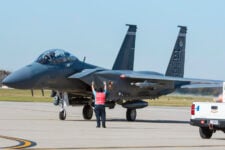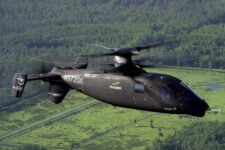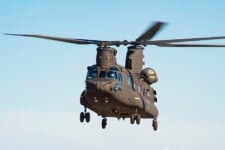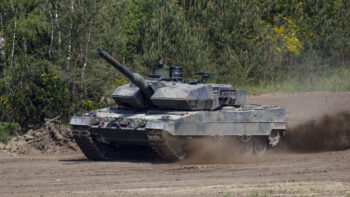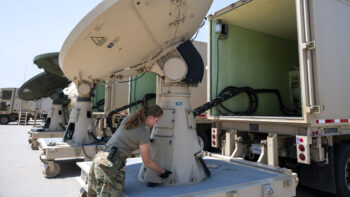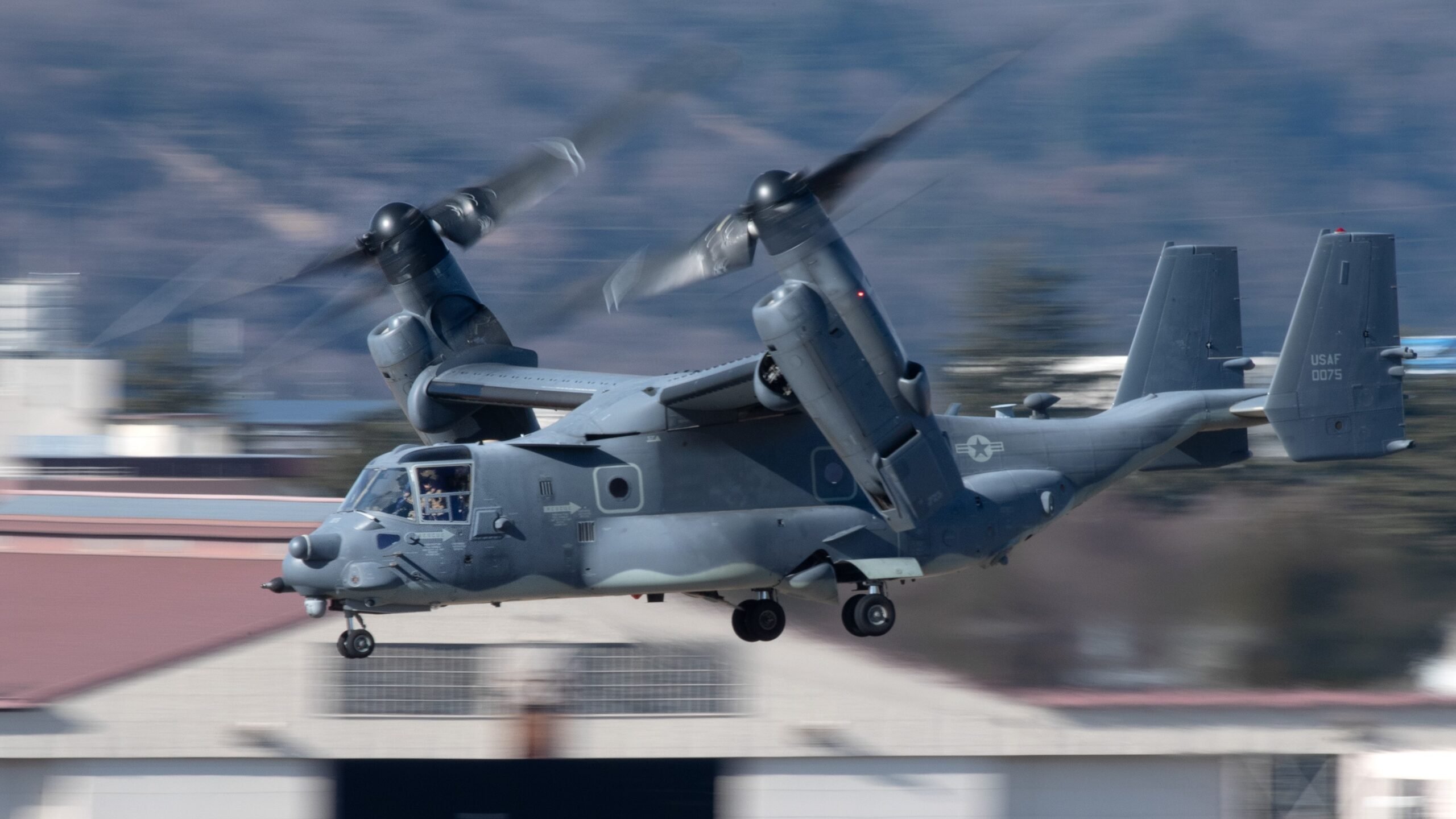
A CV-22 Osprey assigned to the 21st Special Operations Squadron takes off at Yokota Air Base, Japan, Jan. 8, 2021, during a training mission. (U.S. Air Force photo by Yasuo Osakabe)
SYDNEY — Japan took the extraordinary step today of asking the US to ground its V-22 Osprey fleet, a day after one of the American tiltrotors assigned to a special operations wing crashed off the Japanese coast, reportedly killing at least one of eight on board.
Japan, which grounded its own Osprey fleet, asked for a halt of all non-emergency American V-22 flights over its territory until “their safety is confirmed,” with the request coming from Chief Cabinet Secretary Hirokzu Matsuno, one of Japan’s highest officials.
A senior defense ministry official, Taro Yamato, told a hearing at the Japanese Diet today that Japan plans to suspend flights of its 14 aircraft temporarily. A planned training flight Thursday at the Metabaru army camp in southern Japan, for instance, had already been canceled.
One US Osprey has continued to perform search and rescue duty, as the remaining crew are reportedly still missing. US Air Force Special Operations Command said Wednesday the V-22 was based at Yokota Air Base and assigned to the 353rd Special Operations Wing. It had been “performing a routine training mission off the shore of Yakushima Island” when it suffered an as-yet-unidentified mishap.
Japanese Foreign Minister Kamikawa Yoko met briefly today with American Ambassador Rahm Emmanuel at the Ministry of Foreign Affairs. According to a statement from the Foreign Ministry, she “requested confirmation of related facts and prompt information sharing with the Japanese side, as well as the flight operations of Japan-deployed V-22s to be conducted after undergoing necessary examination of the flight safety of the aircraft.”
Emmanuel said the US is investigating the causes of the crash and “would continue to coordinate closely and share information with the Government of Japan.”
We all have seen the tragic news of the U.S. Air Force aircraft that crashed yesterday near Yakushima Island. Our thoughts are with the servicemembers and their families. First and foremost, our focus is on the ongoing search and rescue operations, and we're praying for a safe…
— ラーム・エマニュエル駐日米国大使 (@USAmbJapan) November 30, 2023
Japan was reluctant to buy the V-22 based on the perception that the aircraft had developed in its early days when it suffered several deadly crashes. Since then, the Osprey has become a stalwart aircraft.
But recently the Marines, the Osprey’s biggest proponents, grounded an unspecified number of Ospreys for what became known as the hard clutch problem earlier this year. The Japanese fleet, the newest in the sky, was not affected by the problem, and the Marines were confident in their management of the issue.
Air Force Special Operations Command (AFSOC) had grounded its Osprey fleet for two weeks in 2022 to perform a safety check. They were cleared for flight again in September 2022.


